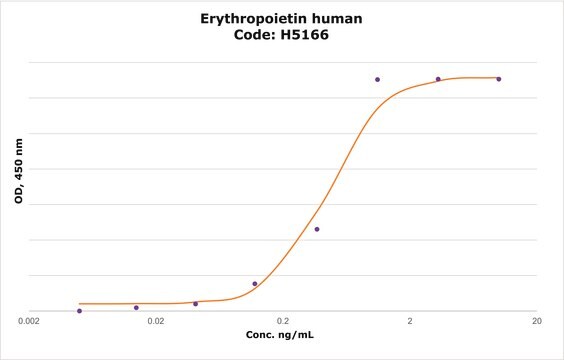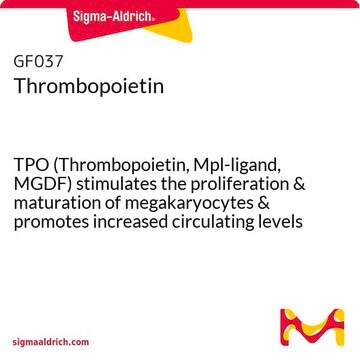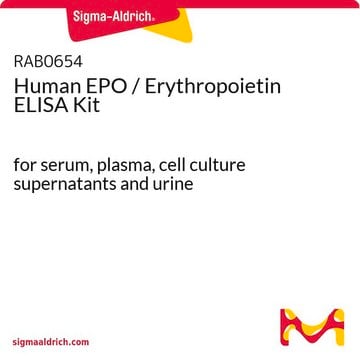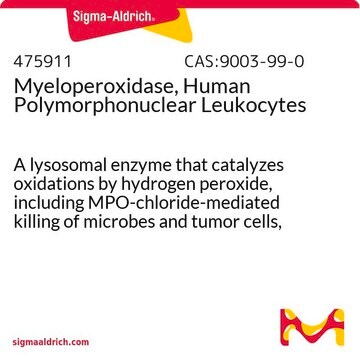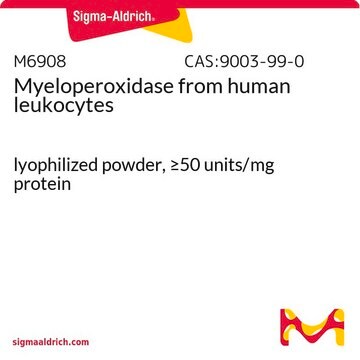SRP6158
EPO human
recombinant, expressed in HEK 293 cells, ≥95% (SDS-PAGE)
Sinónimos:
EP, EPO-alpha, Epoetin, Erythropoietin-alpha, MGC138142
About This Item
Productos recomendados
biological source
human
recombinant
expressed in HEK 293 cells
assay
≥95% (SDS-PAGE)
form
lyophilized
mol wt
36 kDa (monomer, glycosylated)
packaging
pkg of 10 μg
technique(s)
cell culture | mammalian: suitable
NCBI accession no.
UniProt accession no.
shipped in
dry ice
storage temp.
−70°C
Gene Information
human ... EPO(2056)
General description
Application
- EPO (erythropoietin) has been used as a component of the culture medium for cardiac stem cells.
- In cultured cerebellar granule cells and hippocampal neurons, it has been used to study effect of EPO on glutamate release.
- It has also been used as a component of endothelial differentiation medium.
Biochem/physiol Actions
Physical form
Preparation Note
Reconstitution
Storage Class
11 - Combustible Solids
wgk_germany
WGK 3
flash_point_f
Not applicable
flash_point_c
Not applicable
Certificados de análisis (COA)
Busque Certificados de análisis (COA) introduciendo el número de lote del producto. Los números de lote se encuentran en la etiqueta del producto después de las palabras «Lot» o «Batch»
¿Ya tiene este producto?
Encuentre la documentación para los productos que ha comprado recientemente en la Biblioteca de documentos.
Los clientes también vieron
Nuestro equipo de científicos tiene experiencia en todas las áreas de investigación: Ciencias de la vida, Ciencia de los materiales, Síntesis química, Cromatografía, Analítica y muchas otras.
Póngase en contacto con el Servicio técnico